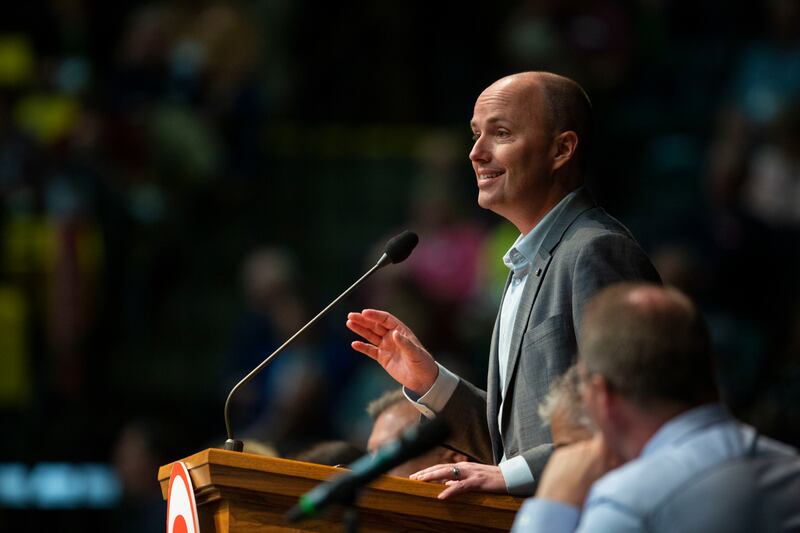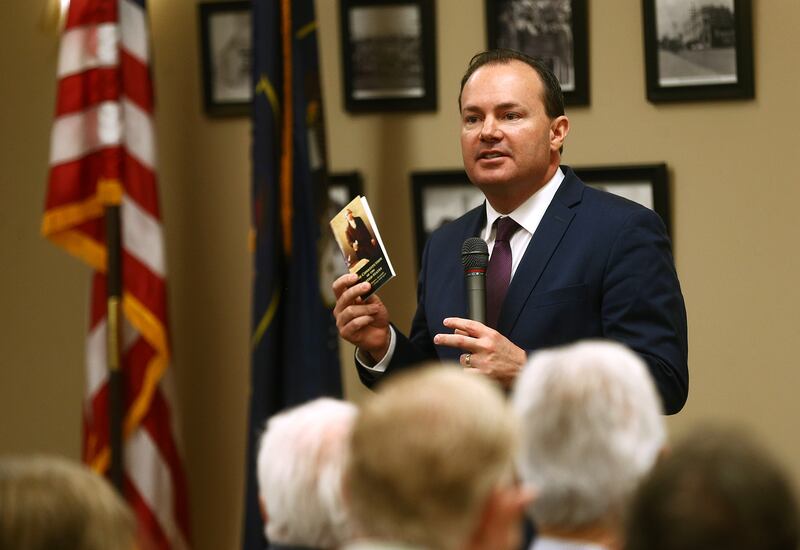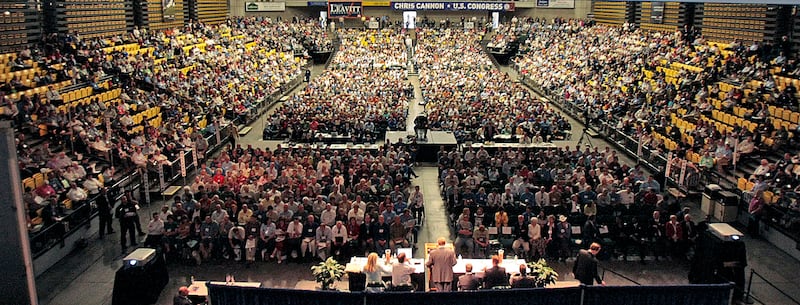Utah is one of the last states where political parties employ the caucus/convention nominating process to select candidates for the primary ballot or the general election. At the root of this process are the neighborhood caucuses where county and state delegates are elected by fellow party members to decide which candidates their party will nominate.
Delegates act as a jury to weigh candidates in the balance against the U.S. and state constitutions, the principles contained in the nation’s founding documents and party platform. I believe our long-standing use of this system is a primary reason Utah is repeatedly identified as the best managed state, that our job growth is the highest and poverty rate is the lowest in the nation, that we top the rankings of best performing metropolitan areas and the state was named No.1 in how it coped with COVID-19.
This nominating process has produced policymakers who have enacted free-market protections and limitations on government power such that Utah’s economic outlook has been identified as No.1 among the 50 states for 15 straight years.
While this caucus/convention nominating process was once widely used by political parties in states across the nation, it has been gradually replaced by direct primaries, which give the advantage to the best funded candidates with the slickest ad agencies.
In contrast, the caucus/convention process has enabled relatively unknown candidates to be nominated on a shoestring budget as they make their case to delegates elected by their neighbors to manage the vetting of their party’s candidates.
Painful scrutiny
Enduring the scrutiny of more than 200 delegates each of the seven times I stood for election to the Utah Senate was for me the hardest part of being elected or even serving in office. For more than a quarter century these pools of delegates combed through my voting record. They knew the bills I sponsored or opposed, and the words I spoke during committee and floor debates, which have been preserved through online recordings for anyone to hear at any time.
I knew as an incumbent that a primary would have been a much less agonizing route to reelection. Yet I preferred the more painful process because of what I knew it did to improve the level of wisdom and integrity of those who are elected to serve, including myself. Running the gauntlet through the nominating process every four years motivated me to be more principled and statesmanlike.
I have often observed that the greatest threat to our republic is the economic and civic illiteracy of America’s voters. Surveys show that two-thirds of Americans can’t name the three branches of government, a majority don’t know which party controls Congress at any given time, most can’t name their own members of Congress or their U.S. senators, much less their state legislators, and 54% cannot name a single justice of the Supreme Court, 66% know at least one “American Idol” judge but only 15% can name John Roberts as chief justice.
Fortunately, this civic illiteracy is not reflective of party delegates. For example, most Republican delegates can explain the Ninth and 10th amendments and the concept of federalism.
One year I asked the delegates in my Senate district to take the American Civic Literacy Test, which the typical voter fails, getting less than 50% of the questions correct. All of the delegates answered at least 90% of the questions correctly. Which group would you want to determine your party’s nominees for public office?

A caucus/convention system in peril
While Utah Republican delegates rate very high on civic knowledge, they have often behaved badly when it comes to civility. For more than two decades, when meeting in convention, delegates have sometimes exhibited an alarming lack of decorum and respect toward those whom they feel have not toed the party line or the principles upon which our republic was founded.
This behavior has in its mildest form led to the use of parliamentary tools to grind the debate on procedure to a halt, causing many delegates to give up and leave the convention, feeling they could make better use of their Saturday.
At its worst, the incivility has led to booing and shouting down elected representatives who were invited to deliver their reports to the convention. Ironically, the delegates who are most upset by today’s ”cancel culture” have attempted to cancel the reports from duly elected representatives they don’t feel pass the delegates’ idealogical purity test.
Rather than following Ronald Reagan’s admonition that “The person who agrees with you 80% of the time is a friend and an ally — not a 20% traitor,” many delegates allowed the differences in political philosophy in the party to lead to what some have called a circular firing squad. This behavior at Utah GOP conventions has sometimes lead to negative national press, causing many to wonder how one of the reddest of red states, which leads the nation in so many metrics, could co-exist with what appears to be a dysfunctional majority party.
In part due to this incivility and the party’s control of the nominating process, which has tended to bar more centrist Republican candidates access to the ballot, an organization called Count My Vote created a citizens’ initiative petition in 2013 to “modernize the election system” and eliminate the caucus/convention nominating system in favor of a direct primary.
Count My Vote leaders described delegates they said represented 0.3% of Utahns as out of touch and more concerned about guns and grazing than education. In its 2014 general session, the Utah Legislature responded to the petition — which was likely to qualify for the ballot and likely to pass — with SB54, a bill that ensured continuation of the caucus/convention system but provided an alternate route to the primary ballot through signature gathering.
Many delegates felt this was an unconstitutional infringement of the First Amendment freedom of association and sued, but they lost in both state and federal courts. Many delegates to this day erroneously feel SB54 was the response of weakness by the Legislature. They don’t know that without it, the caucus/convention system would likely be a relic of history.

A civility test
This Saturday, the Utah State Republican Convention will be held. There is a significant risk that many delegates will participate in disrupting elected officials’ reports by shouting and booing. It is my hope that Republicans can exercise restraint by exhibiting the highest levels of decorum and respect; that they will allow all speakers to deliver their reports and that all candidates will be treated with respect.
If delegates, as the most civically literate of citizens, cannot demonstrate civility and statesmanship, I fear we could eventually lose what is left of the caucus/convention nominating process.
Howard Stephenson has been a delegate to the Utah Republican State Convention since 1976. He served 26 years in the Utah Senate and worked full time as a taxpayer advocate for 44 years.

